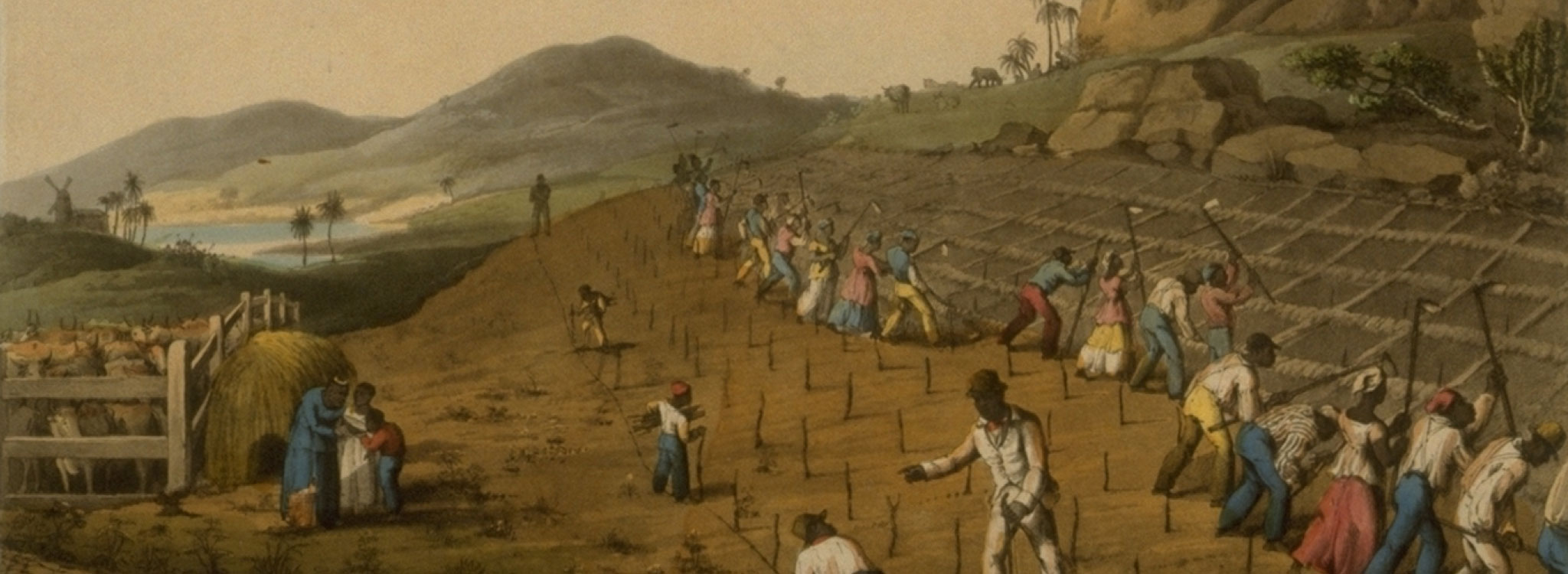Francis Williams was the free born son of a Jamaican freedman who became the first black writer to gain recognition in the British Empire.
Williams was born free around 1690 in Jamaica, the son of John Williams and his wife, Dorothy. John had been freed by his master sometime before 1690. The elder Williams accumulated significant wealth through savvy business deals, leaving an estate worth £12,000 sterling upon his death in 1723. Francis Williams was christened on December 26, 1697 in Spanish Town’s (then Jamaica’s capital) St. Catherine parish church.
Around 1710, Williams journeyed to Britain for an education. Accounts vary, but he certainly studied law at Lincoln’s Inn, London, beginning in 1721. Williams apparently never finished a law degree and was back in Jamaica by the end of 1724, shortly after his father’s death.
Back in Jamaica, Williams became a local celebrity, attracting fans and critics alike. He apparently sought a seat in the House of Assembly, but was rejected because of his ethnicity. Williams attended the governors’ receptions in wig and sword. In 1730, the Jamaica Assembly passed an act that, among other things, attempted to reduce William’s privileged status to that of other free blacks by prohibiting him from bearing arms. Appealing to England, Williams won this case in 1732.
Around 1740, an anonymous portrait artist painted Williams dressed in grand style, wearing a ruffled silk shirt, waistcoat, long black velvet coat, breeches, and stockings. He is surrounded by books and globes to indicate his intellectual status. This style of life proved expensive and Williams apparently lacked the business skills of his father. He ran a school for black students, teaching reading, writing, Latin, and mathematics, but this was not lucrative. While Williams never formally married, one account indicates he treated one of his slaves as a wife and had children with her. To finance this lifestyle, Williams sold off inherited lands and slaves, and at his death in 1762, his estate had dwindled to just £500 sterling, (most of the value coming from his sixteen slaves). He was buried in the churchyard of St. Catherine parish church in Spanish Town.
A Latin poem is the only confirmed example of Williams’s literary output to survive. Contemporary comment on Williams came almost entirely from hostile whites who went out of their way to disparage his intellectual and literary achievements. Williams challenged everything they claimed about the inferiority and incapacity of black people, and their place in creation as mere drudges. Edward Long, the prominent pro-slavery planter who denied the humanity of black Africans, devoted a great deal of space in his History of Jamaica (1774) to Williams, including one of his poems. Perhaps the most celebrated reference came in the Scottish philosopher David Hume’s infamous footnote M, in his essay “Of National Characters,” first published in 1753 but revised in 1777 to note that in Jamaica “they talk of one negroe as a man of parts and learning; but ’tis likely he is admired for very slender accomplishments, like a parrot, who speaks a few words plainly.”
While Williams never opposed the fundamentals of slave society, he openly challenged white dominance and advocated for the rights of free black people.
Bibliography
Carretta, Vincent. “Who Was Francis Williams?” Early American Literature 38 (2003): 213–237.
Gilmore, John. "The British Empire and the Neo‐Latin Tradition: The Case of Francis Williams." In Classics and Colonialism. Edited by Barbara Goff, London: Duckworth, 2005.
Gilmore, John. “Williams, Francis (c. 1690–1762).” In Oxford Dictionary of National Biography, edited by H. C. G. Matthew and Brian Harrison. New York and Oxford: Oxford University Press, 2004. www.oxforddnb.com/index/57/101057050.
Higman, B. W.. "Williams, Francis." Dictionary of Caribbean and Afro-Latin American Biography , edited by Ed. Franklin W. Knight. , edited by and Henry Louis Gates Jr.. . Oxford African American Studies Center, http://www.oxfordaasc.com/article/opr/t456/e2210 (accessed Tue Sep 10 13:58:37 EDT 2019).
Little, Roger. “Reflections on a Triangular Trade in Borrowing and Stealing: Textual Exploitation in a Selection of African, Caribbean and European Writers in French.” Research in African Literatures 37 (2006): 16–27.
Robertson, James. Gone Is the Ancient Glory: Spanish Town, Jamaica, 1534–2000. Kingston: Ian Randle, 2005.
Ronnick, Michele Valerie. “Francis Williams: An Eighteenth-Century Tertium Quid.” Negro History Bulletin 61 (1998): 19–29.
“Williams, Francis” in Oxford Companion to Black British History
Author
B. W. Higman
Adapted by
James Almeida and Steven J. Niven
Contributing Institutions
Hutchins Center for African & African American Research, Harvard University, Cambridge, MA.
Oxford University Press (USA) African American Studies Center.






